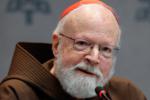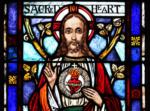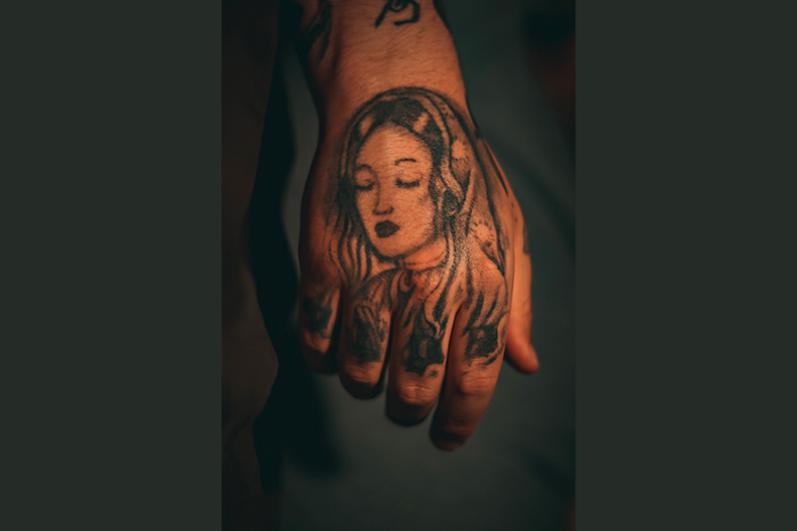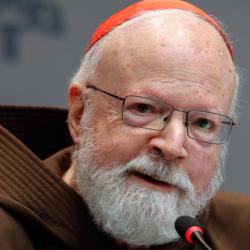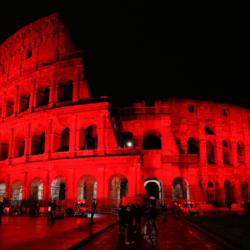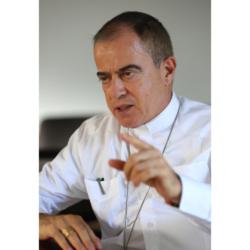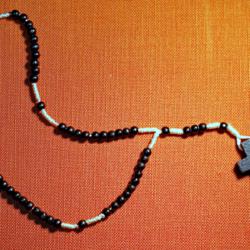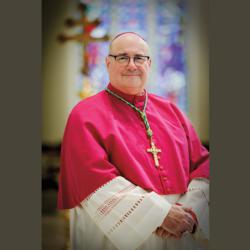A question on tattoos
Q: Is a tattoo a good way to develop a devotion to Our Lady? (Madison, WI)
A: Tattoos are certainly not one of the church's first line, go-to recommendations for deepening any sort of devotion. And as far as I have been able to tell, the church does not have any specific teaching regarding tattoos in general.
That being said, whether or not a tattoo could be useful for a specific person to develop a devotion to Our Lady depends on that particular individual, their particular life circumstances and cultural context, their personal spirituality and unique spiritual needs. While there needs to be sufficient reflection for any permanent decision, in theory I would imagine that a tasteful and artistically beautiful tattoo in a Marian theme could help some people further love and honor Our Lady.
Interestingly, although the church doesn't have any official doctrine on tattoos, there are a few instances where tattoos are part of a broader cultural Catholic tradition. One good example is a custom, dating back to the Middle Ages, where Catholic pilgrims to the Holy Lady get a religious tattoo to commemorate their pilgrimage.
Q: My new parish priest's wife died before he became a priest. He sometimes even talks about his grandchildren during the homily. Why is this allowed? He obviously wasn't always celibate, and I thought priests had to be celibate? (Portland, ME)
A: Latin (a.k.a. "Roman") Catholic priests are indeed expected to be celibate. As canon 277, 1 of the Code of Canon Law tells us, they are "obliged to observe perfect and perpetual continence for the sake of the Kingdom of heaven and are therefore bound to celibacy. Celibacy is a special gift of God by which sacred ministers can more easily remain close to Christ with an undivided heart and can dedicate themselves more freely to the service of God and their neighbor." (A quick note on terminology: in canon law, "continence" means refraining from all sexual relations, while "celibacy" refers to being unmarried. "Chastity," a term not mentioned in this canon, means expressing one's sexuality in ways appropriate to one's state in life.)
However, priestly celibacy is not a retroactive requirement. Provided that he is otherwise suitable, a man can be ordained to the priesthood if he is presently unmarried and willing to commit to a life of chaste celibacy going forward -- even if he had been previously married or is a father to children. Of course, if a previously married man aspires to the priesthood, generally during his formation period there will be additional, careful discernment concerning any possible family obligations he may have. E.g., men with minor children are generally not admitted to seminary formation, since in such a case he would already have serious preexisting obligations as a natural father.
Incidentally, married Catholic clergy are not quite as extraordinary as you might expect. Permanent deacons, while not priests, have still received the sacrament of Holy Orders and are therefore still considered clergy; and most of the permanent deacons we have in the Unites States are married men. And the various Eastern Catholic Churches have a tradition of married priests. There is also a pastoral provision that allows former Anglican priests who have converted to Catholicism to discern a vocation to the Catholic priesthood, allowing for the possibility of their ordination even if they are married.
But one major caveat in this discussion is that while it can be possible to ordain already-married or once-married men, a man cannot validly marry after he had been ordained. This means that married Eastern Catholic priests, permanent deacons, etc. cannot re-marry if their wife dies. And in the case of your pastor, a widowed man who later becomes a priest obviously would not be allowed to marry again.
- Canonist Jenna Marie Cooper is a consecrated virgin, a practicing canon lawyer, and columnist for OSV News.



